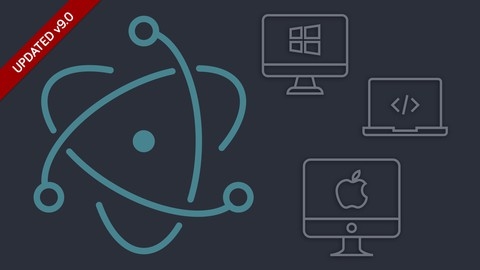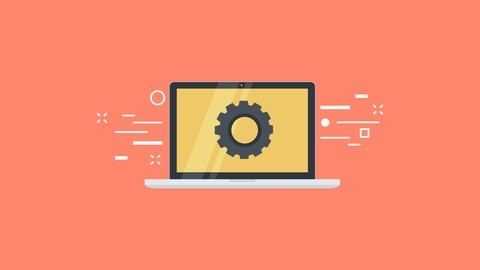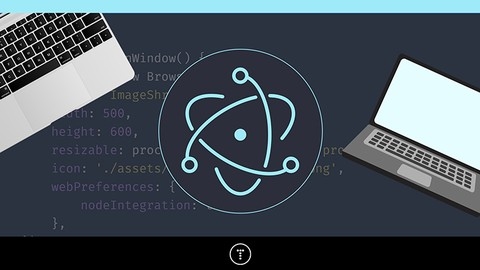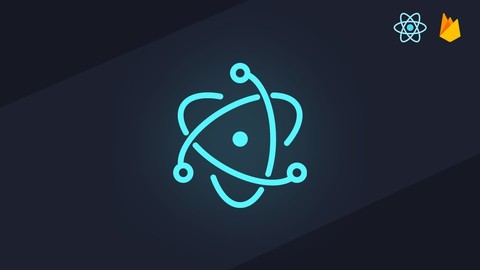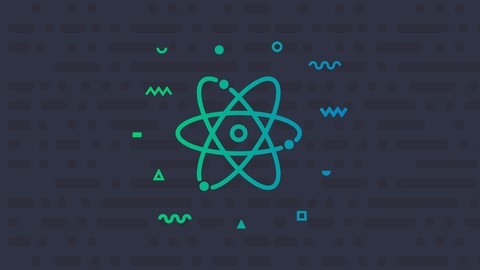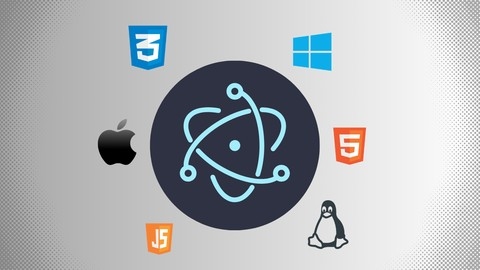Electron is a powerful framework that allows developers to build cross-platform desktop applications using web technologies like HTML, CSS, and JavaScript.
This means you can leverage your existing web development skills to create rich and engaging user experiences for desktop environments.
By mastering Electron, you can unlock exciting opportunities to build desktop apps for various purposes, from productivity tools to multimedia players to even games.
Finding the right Electron course on Udemy can feel overwhelming, with countless options vying for your attention.
You want a course that goes beyond theory, providing practical experience and real-world projects to solidify your understanding.
Based on our comprehensive review, Master Electron: Desktop Apps with HTML, JavaScript & CSS emerges as the best course overall on Udemy for learning Electron.
This comprehensive program covers everything from the fundamentals of Electron to advanced features and techniques, providing hands-on projects and real-world applications to solidify your understanding.
This isn’t the only great Electron course on Udemy though.
Keep reading to explore our list of recommendations for different learning styles and goals, from beginner-friendly introductions to advanced courses focused on specific Electron features and integrations.
Master Electron: Desktop Apps with HTML, JavaScript & CSS
You’ll learn everything from the fundamentals of Electron to advanced features and techniques.
The course starts by introducing you to Electron’s core concepts, such as installation, application structure, and native Node Modules.
You’ll then delve into the Main Process API, which allows you to control the main window of your app.
The BrowserWindow object is explored in depth, empowering you to create a wide range of window types, including frameless windows and child windows.
You’ll gain practical experience with essential modules like the Session module for managing cookies and downloads, the Dialog module for creating dialog boxes, and the Menu module for building menus and context menus.
You’ll also delve into the Renderer Process API, allowing you to control the web content within your browser window.
The course explores IPC (Inter Process Communication), enabling seamless communication between the main process and the renderer process, including powerful modules like the Remote Module and the IPC Invoke & Handle methods.
The course doesn’t just provide theoretical knowledge.
You’ll develop a real-world project, learning how to submit and retrieve items, open them in a reader, delete them, and manage the application menu.
You’ll also explore the power of Electron-Builder for distributing your app, learning how to sign your code, publish releases, and implement an auto-update feature.
The course even covers MacOS Notarization, an essential step for distributing applications on the Mac platform.
Furthermore, you’ll learn how to build and integrate a Touch Bar for your app, enhancing the user experience on macOS.
You’ll discover how to create basic Touch Bar layouts, add labels and buttons, and implement event handlers.
From fundamental concepts to advanced features, you’ll be able to build powerful and engaging applications that run seamlessly across Windows, macOS, and Linux.
Electron for Desktop Apps: The Complete Developer’s Guide
You’ll start with the fundamentals, understanding what Electron is, how it works, and delving into its history and project management techniques.
The course then dives into the core of Electron development.
You’ll learn to create windows, craft menus, master developer tools, and utilize IPC for seamless communication between your app’s different components.
You’ll also gain proficiency in FFMPEG and FFProbe, enabling you to work with video files, extract information like video duration, and even perform video conversions.
As you progress, the course seamlessly introduces React and Redux, two powerful tools for building user interfaces.
You’ll learn to integrate these technologies with Electron, building a full-featured application.
You’ll gain mastery over asynchronous tasks using promises and leverage the power of Webpack to bundle your application for efficient deployment.
The course doesn’t stop at the basics, delving into advanced concepts like background throttling, managing window focus, crafting context menus, and even controlling dock icons.
You’ll be comfortable with a wide range of tools and technologies, including Electron, React, Redux, Webpack, and FFMPEG, equipping you for a wide array of desktop app development challenges.
Electron From Scratch: Build Desktop Apps With JavaScript
“Electron From Scratch” is a comprehensive course that equips you with the skills to build robust desktop applications using JavaScript.
Its hands-on, project-based approach ensures you don’t just learn the theory, but master the practical application of Electron.
You’ll dive right into building three compelling applications:
- Image Shrink App: This project introduces you to the core concepts of Electron, including setting up the environment, creating windows, loading files, and adding icons.
You’ll discover the power of Nodemon, a game-changer for streamlining development by allowing you to see changes instantly without restarting the app.
The project also delves into crafting menus and shortcuts, essential for user-friendly interaction.
- SysTop App: This project takes you deeper into Electron by teaching you how to gather and display system information, such as CPU usage and memory usage.
You’ll learn to leverage the Notifications API to provide helpful feedback to users, making your apps more intuitive and engaging.
The project also highlights storing local data using a store, allowing your applications to retain user settings and preferences.
- BugLogger App: This project combines Electron with React and MongoDB, demonstrating the power of building complex, real-world applications.
You’ll build a bug logging app, complete with a React UI and a MongoDB database for storing and managing bugs.
You’ll learn to connect to MongoDB using Mongoose, enabling you to seamlessly add, retrieve, and delete bug entries from the database.
By completing these projects, you’ll have a solid foundation in building, managing, and deploying your own Electron applications.
You’ll understand the intricacies of Electron’s environment, UI development, inter-process communication, database integration, and deployment.
Electron & React JS - A Practical Guide for Chat App
This course offers a solid foundation in building desktop applications with Electron and React, using a real-world chat application as your guide.
You’ll start by diving into the fundamentals of Electron, learning how to create a basic window, understand its key features, and integrate Node.js to interact with your system and files.
Next, you’ll explore React, a popular library for building user interfaces.
You’ll learn how to set up React within your Electron project, understand Webpack for bundling your code, and master essential debugging techniques.
The course emphasizes seamless communication between your Electron main process and your React renderer process, a key element for a smooth user experience.
You’ll then start constructing your chat app’s core features, focusing on a user-friendly layout built with React components and routing.
You’ll integrate Firebase for authentication and real-time data storage through Firestore, mastering concepts like state management with Redux to implement robust features like login, registration, and user profile management.
The course prioritizes a solid understanding of authentication, ensuring you create a secure and reliable chat application.
As you progress, you’ll add features like creating and joining chats, sending messages, and managing online status updates.
You’ll learn to utilize Electron’s native features, including app menus, multiple windows, dock icons, and tray menus, giving your application a truly native feel.
The course concludes with a detailed walkthrough of packaging and deploying your app for distribution.
A bonus module on building a ChatGPT app using Electron and React adds an exciting dimension to the course.
You’ll learn how to integrate the ChatGPT API, design the user interface for prompt input and response display, and even add features like a typewriter effect for a more engaging AI experience.
This course offers a comprehensive approach to desktop app development, combining practical knowledge with engaging examples.
You’ll gain the skills to build functional, user-friendly applications, while exploring advanced concepts like real-time data management and AI integration.
Master Electron Framework And Build 5 Advanced Desktop Apps
You’ll gain a solid foundation in Electron’s core concepts, including its main and renderer processes, Inter-Process Communication (IPC), and native functionalities like menus and dialogs.
The course’s strength lies in its hands-on approach, guiding you through the creation of five diverse projects that showcase real-world applications of Electron: a text editor, a music player, a system tray application, a news reader, and a radio app.
For example, you’ll learn how to leverage the mm package to extract data from audio files and display it within your Music Player, and you’ll explore the NewsAPI to retrieve headlines and articles for your news app.
Each project deepens your understanding of Electron’s capabilities and provides valuable experience in building desktop applications with a user-friendly interface.
The course doesn’t stop at building the apps; it also equips you with the knowledge to package them for different operating systems.
You’ll learn to create executables for Windows, macOS, and Linux using tools like Electron Builder and Electron Forge.
You’ll also be exposed to helpful resources such as the official Electron documentation and Electron Fiddle, which will aid your development journey.
This course is a great starting point for anyone interested in building desktop applications using Electron.
You’ll gain the foundational skills and practical experience to confidently build your own projects and leverage Electron’s capabilities to create innovative desktop applications.
Mastering Electron: Build Modern Desktop Apps (2024 Edition)
This course takes you from novice to developer, equipping you with the skills to confidently tackle real-world projects using Electron.
You’ll start by diving into the fundamentals with a classic “hello world” example.
This lays the groundwork for understanding core concepts like processes, IPC (Inter-Process Communication), and preload scripts.
The course goes beyond a simple introduction, exploring both one-way and two-way communication between renderer and main processes, critical for building dynamic and interactive applications.
The “Todo App Project” serves as a perfect hands-on learning experience.
You’ll build a functional application, mastering how to connect to a database for note storage and management.
This project delves into crucial operations like creating, reading, editing, and deleting notes, giving you a solid understanding of building complete applications.
The course even includes optional UI design guidance, allowing you to personalize your application with a unique look and feel.
Beyond building the application, you’ll learn to package it for distribution using Electron Builder, ensuring your creation is ready for users.
The course also addresses the critical aspect of auto-updates, showcasing the power of tools like Electron-Updater and Github Releases to keep your applications current.
This knowledge empowers you to provide seamless updates, ensuring users always have access to the latest features and bug fixes.
Its focus on real-world application building and essential development practices makes it a valuable resource for aspiring Electron developers.
